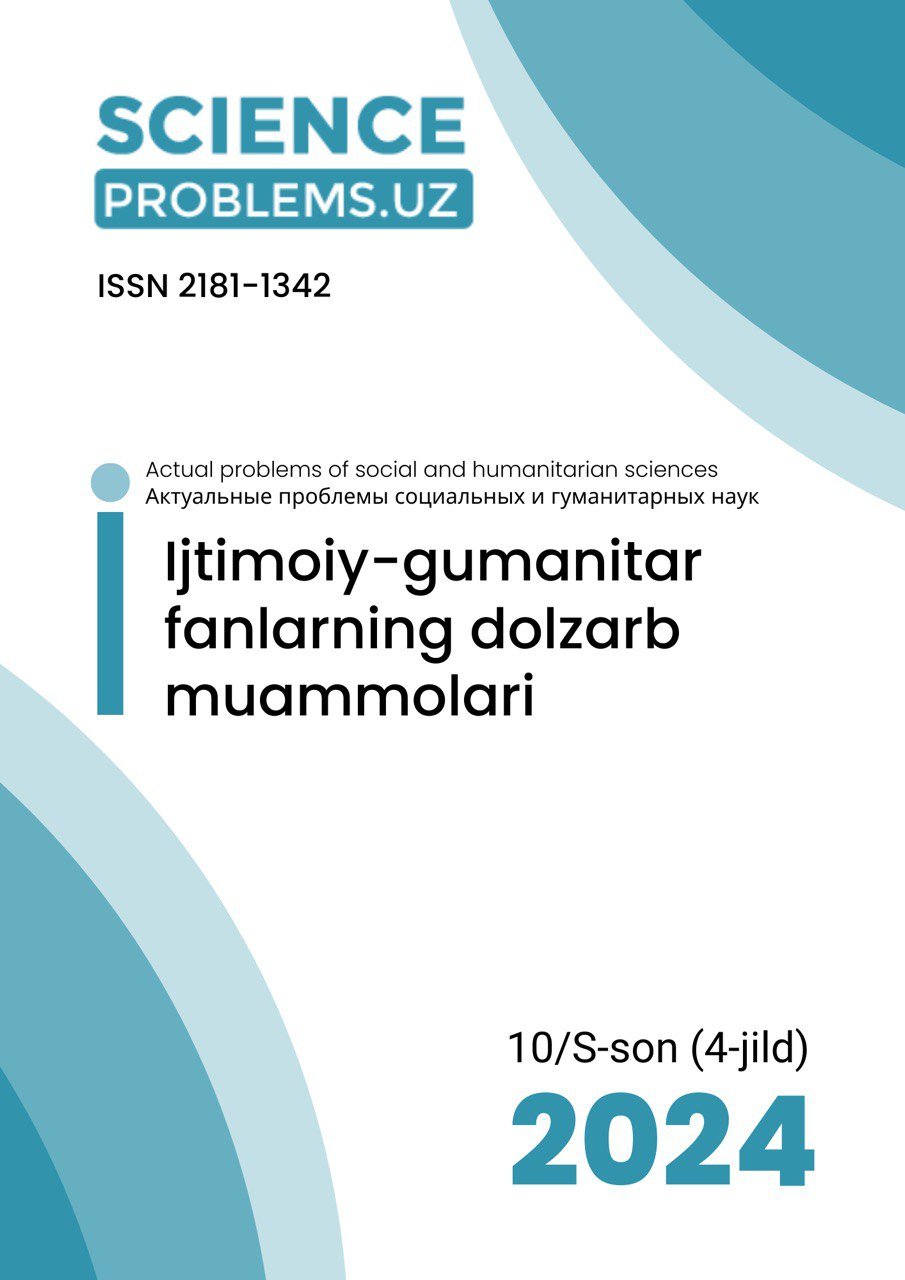UNIQUE FEATURES OF SCIENTIFIC DISCOURSE
DOI:
https://doi.org/10.47390/SPR1342V4SI10Y2024N24Keywords:
discourse, text, neutral vocabulary, emotional vocabulary.Abstract
This article explores the concepts of scientific discourse and scientific text, highlighting their differences. Additionally, it provides information about Uzbek linguists who have studied scientific discourse and their research, as well as the unique features of scientific discourse. The article reveals that scientific text is not limited to terms and neutral vocabulary but can also convey the author's emotional perspective.
References
1. Fairclough, N. (2003). Analysing discourse: Textual analysis for social research. Routledge. 279 pp.
2. Gee, J. P. (2010). How to do discourse analysis: A toolkit. Routledge. 206 pp.
3. Hakimov M. “O‘zbek pragmalingvistikasi asoslari”. Toshkent: “Akademnashr”, 2013. B. 176.
4. Li, Z. Is academic writing less passivized? Corpus-based evidence from research article abstracts in applied linguistics over the past three decades (1990–2019). Scientometrics 127, 5773–5792 (2022). https://doi.org/10.1007/s11192-022-04498-0
5. Mukarramov M. Hozirgi o‘zbek adabiy tilining ilmiy stili. –Toshkent: Fan, 1984.
6. Safarov Sh. Pragmalingvistika. Monografiya. –Toshkent. 2008. B.318.
7. Van Deyk, T. A. (1997). Discourse as structure and process. Sage Publications. 355 pp.
8. Xalilova M. O‘zbek tili stilistikasi asoslari. – Farg‘ona. 2009. B. 104.
9. Хомутова, Т.Н. Типология дискурса: интегральный подход // Вестник Южно-Урал. гос. ун-та. Серия: Лингвистика. – 2014.– Т. 11, № 2
10. С. Чернявская В. Е. Дискурсивный анализ и корпусные методы: необходимое доказательное звено? Объяснительные возможности качест-венного и количественного подходов. Вопросы когнитивной лингвистики. 2018, 2: 31–37. DOI: 10.20916/1812-3228-2018-2-31-37.








